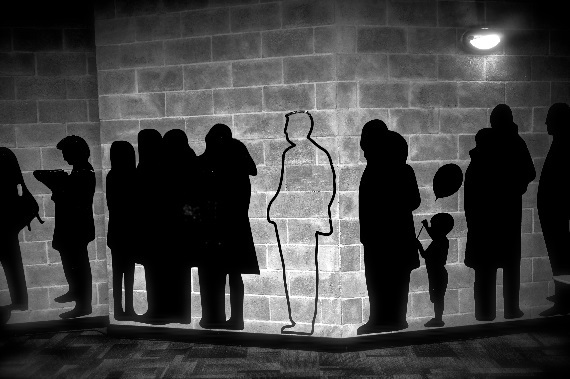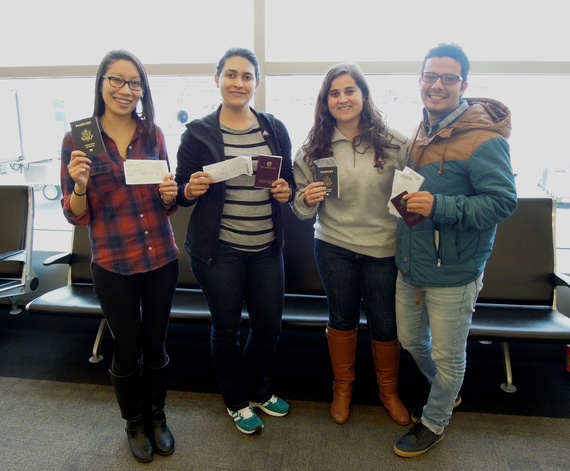By Andres Hernandez, Andrea Martinez, Liliana Villa, and Dee Dee Wei
As we boarded the plane from Boston to Medellin, Colombia, and our tickets were being scanned one by one, we realized the importance of being counted. This was a stark difference to the many conversations we had been having with our Colombian colleagues. Half of our group is from Medellín and is familiar with the realities of Granizal, a community of desplazados (internally displaced people) that we would soon visit and see first-hand. Our Colombian colleagues described to those of us living in the US, the problems desplazados have faced throughout their lives. Most troubling to us was the reality of not being accounted for.
After being forced to move from different rural regions of the country coupled with a lack of recognition from Colombia's national and local governments, a community was created without social cohesion and was further isolated from the rest of the Colombian society. A major point of contention and challenge is their alleged illegal occupation of the land. In one of our lectures, Dr. Gregg Greenough, Assistant Professor at the Harvard School of Public Health, discussed the importance of having accurate demographic data for populations when planning public health initiatives. In creating efficient interventions, key data are critical to collect in order to better understand and describe the social conditions of the people in the community. Without this demographic data public health professionals are uncertain of the various health issues and living conditions of these displaced populations, and are therefore, unable to allocate resources accordingly. This lack of information can often result in inadequate public health programs for this marginalized population and makes it difficult for the people of Granizal to advocate for recognition by the government and the subsequent access to services necessary for living as productive citizens in the greater urban society.
This absence of government recognition creates many additional problems that affect the health and quality of life of the people in Granizal. Two major health-related issues that the people of this community face are poor sanitation and unsafe drinking water. These essential needs are a right that the government should guarantee for all of its citizens. However, the government hesitates to provide these services as it claims that Granizal's settlements are illegal. For similar reasons, this population has difficulty accessing health and social services, such as medical care, health insurance, and pensions. The children of Granizal also lack access to proper education. Many of the children do not attend school, and the local school has been identified as one of the poorest in Colombia. Thus, it is imperative to count and map the population to graphically illustrate their needs. New mapping technologies using GPS, cellphones, drones, and satellite images can facilitate the process. Nonetheless, executing a census should be the ultimate goal as it includes health indicators in addition to socio-demographic data. Despite the fact that a census can be expensive, Granizal's population is relatively small and the benefits would likely outweigh the costs.
As Colombia transitions into peace, we must emphasize community empowerment and social cohesion, especially among the disenfranchised, in order to promote and maintain peace. Formal government recognition is not merely an identification document that represents residency status; it also represents community belonging and social identity. Formally recognizing displaced populations promotes social inclusion and peace.
As our plane took off, we continued to think about these issues, our hopes, and concerns. Those of us from the US worried about how, as outsiders, we could propose sustainable solutions to the community we aim to help. Those of us from Colombia, hoped our combined efforts with our American colleagues will help one of our country's most vulnerable populations. In this instance and with the start of our journey, we were counting on each other.
This post is part of a series entitled "Post-Conflict Colombia and Public Health" a project of the Open Hands Initiative and the Harvard Humanitarian Initiative, in collaboration with the School of Medicine - Universidad de Antioquia. For more information about the project, read here.


